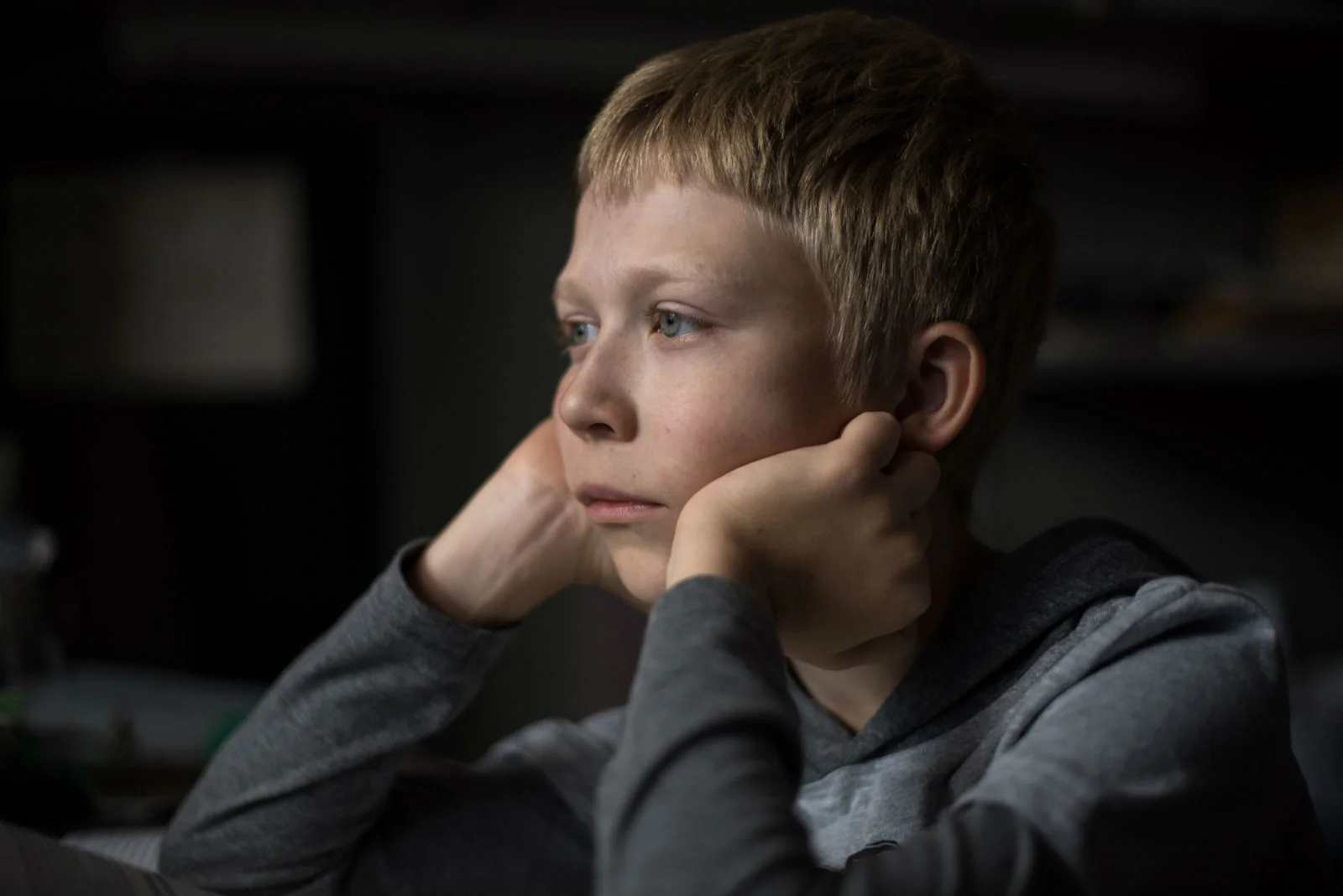Loveless: Bleak Russian Drama Mirrors Vanity, Hate, Neglect of Setting
By Liam Lacey
RATING: A-
In his last film Leviathan, Russian director Andrey Zvyagintsev offered a pitiless but bitterly funny portrait of corruption in a fishing town as a microcosm of his country's woes.
Pretty much only the "pitiless" part remains his fifth film Loveless, which won a Jury Prize at last year's Cannes film festival and is Russia's nominee for Best Foreign Film Oscar. That's unlikely to be a cause for Russian pride. Zvyagintsev shows Putin-era middleclass Moscow as a realm of vanity, hate and heartless neglect.
What we get, by way of compensation, is Zygagintsev's considerable filmmaking skills: the beauty of the camera manoeuvres, the long, immersive takes and a sustained tone of fearful fascination. In his visual style, the director takes a lot from his late countryman, the late Andrei Tartovsky: the wintry wetness, the desaturated landscapes, the long ominous explorations of landscape.
Matvey Novikov in a scene from Loveless.
That influence is particularly evident in the strong opening and closing sequences of the film. As the film begins, the blond, slender 12-year-old Alyosha (Matvey Novikov) leaves his school and wanders through a wintry park to one of the series of white elephant apartment blocks where he lives.
This is not much of a refuge. Alyosha's vain, impatient mother, Zhenya (Maryana Spivak) and his weak, teddy bear of a father, Boris (Aleksey Rozin) hate each other. They haven't told their son yet, but they are selling their apartment to move in with their new lovers. Zhenya's new catch is an older man with a huge stylish house who dotes on her, and she revels in her good fortune. Boris' new love is a much younger woman, already pregnant, whose mother sees Boris as a new meal ticket.
Their son was an accident that has become a big inconvenience. The father suggests sending him to military school ("He'll join the army someday. Why not start him getting used to it?") or perhaps Zhenya's mother, who is described as "Stalin in high heels." As Alyosha hides behind the bathroom door, listening to his parents' argument, his face contorts into a silent scream.
The next morning the boy runs off to school, Boris to his work cubicle and Zhenya to the beauty salon. In the evening, the parents go to their respective lovers. And the kid? We don't hear from him for a while. Then Zhenya gets a call from his school that Alyosha hasn't been seen.
Most of the second half of the film turns into a kind of a procedural. A bored detective reassures them most kids return in a few days but Alyosha doesn't. Zhenya and Boris drive to visit Zhenya's mother, to see if the boy has gone there. Fat chance. She's an ogre of a woman in a fortified cottage, who seems to think everyone should have been aborted.
The detective says the police are too busy to help but he tips them off to a community volunteer group. Soon, the orange-vested volunteers are beating the suburban bushes, poking through the ruins of an abandoned building that may have aspired to be a spa-hotel, now rotting and rusting in the rain. The search is a maze of dead ends: a runaway boy in a hospital, another in a morgue. The search party, the only selfless adults in the film, seem disturbingly well-practiced in searching for missing Muscovites.
Zvyagintsev is heavy-handed in his social messaging. Women are, typically, venal. Gaggles of girls snap selfies in a cocktail lounge; another slipping her phone number to a stranger before going to meet another man. Also, the apocalypse may be coming. The radio cites reports of the Mayan prophecy the world will end (the movie's set in 2012). And war is on the horizon. The television reporters are drumming up propaganda against Ukraine.
Late in the film, there's an eye-rolling sequence of Zhenya running on her treadmill with the word "RUSSIA" emblazoned across her track suit. Curiously, the same visual metaphor is used in the first episode of the current season of the television show Homeland, which opens with an autocratic new U.S. president and CIA agent, Carrie Mathisson, running in place. You could think of them as a mirror images, or birds of an oil-slicked feather.
Loveless. Directed by Andrey Zvyagnitsev. Written by Andrey Zvyagnitsev and Oleg Negin. Starring Maryana Spivak, Alexey Rozin, and Matvey Novikov. Opens February 23 in Toronto (at TIFF Bell Lightbox) and Montreal; and throughout the winter/spring in other cities.

